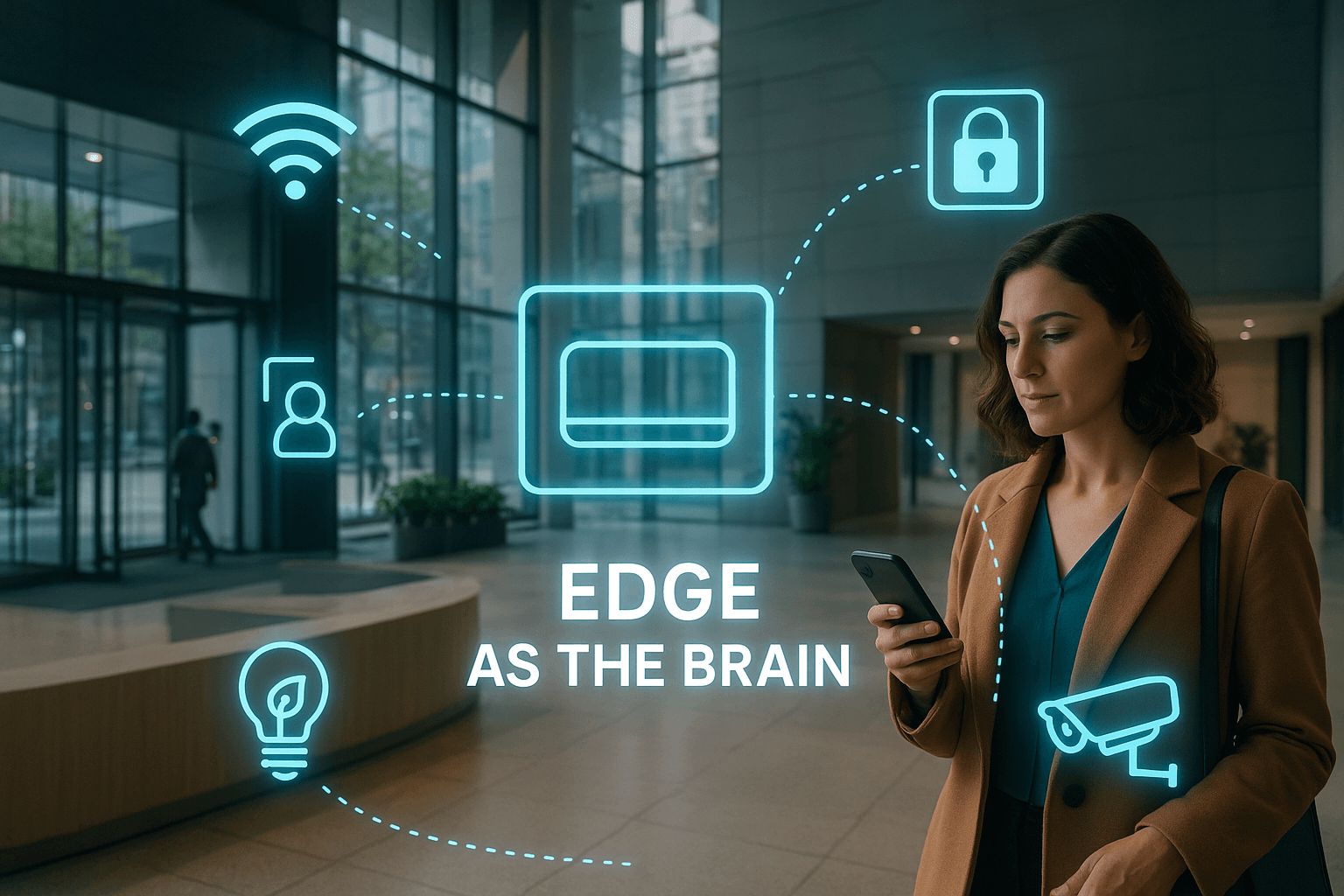
How AI-Enhanced Connectivity is Shaping Industries
AI-enhanced connectivity is redefining how industries operate, creating new opportunities and efficiencies.
We at Shirikihub closely observe this revolution across manufacturing, healthcare, and retail.
From predictive maintenance in factories to personalized shopping experiences online, the impact is significant.
Join us as we explore these transformative changes in our latest insights.
How is AI Changing Manufacturing?
AI-enhanced connectivity is making waves in manufacturing by tackling long-standing challenges with innovative approaches.
Predictive Maintenance Reduces Downtime
Predictive maintenance uses AI to anticipate when equipment might fail, allowing timely interventions that minimize production halts. A McKinsey report highlights that predictive maintenance can decrease maintenance costs by up to 30% and reduce unplanned downtime. For manufacturers, this translates to significant cost savings and enhanced operational efficiency. AI systems analyze data from sensors to predict failures, ensuring equipment operates smoothly.
Optimizing Supply Chain Management
AI is revolutionizing supply chain management by providing insights that were previously out of reach. With AI-powered demand forecasting, manufacturers can better align their production schedules with market demand, reducing overproduction and stockouts. According to DHL, companies using AI in their supply chains report a 15% reduction in logistics costs and a 35% improvement in delivery times. This precise synchronization improves inventory management and customer satisfaction.
Enhancing Quality Control and Production Efficiency
Quality control has always been pivotal in manufacturing, and AI is taking it to the next level. AI algorithms can monitor production lines in real time, identifying defects or deviations from standards with more accuracy than human inspectors. A study by Capgemini found that AI-enhanced quality control could increase defect detection rates by up to 90%. This level of scrutiny ensures that only the highest quality products reach the market, boosting brand reputation and reducing returns.

Incorporating AI into manufacturing processes is no longer optional but essential for staying competitive. By leveraging AI-enhanced connectivity, manufacturers can achieve unprecedented levels of efficiency, quality, and operational excellence.
How is AI Changing Healthcare
AI-enhanced connectivity is revolutionizing healthcare, delivering tangible benefits in patient care, hospital management, and medical research.
Remote Patient Monitoring and Telehealth
AI’s role in remote patient monitoring is transforming patient care. Using AI-driven devices, clinicians can continuously track vital signs and detect anomalies in real-time. For example, the use of AI-enabled wearables has proven effective for patients with chronic diseases, reducing hospital admissions by 20%. Telehealth platforms enhanced with AI offer personalized care recommendations, leading to higher patient satisfaction and better outcomes. This approach ensures that patients receive timely interventions, minimizing complications and improving overall health management.
Streamlined Hospital Operations
Hospitals are leveraging AI to optimize their operations, significantly enhancing efficiency. AI systems can automate administrative tasks like patient scheduling, billing, and resource management. This automation leads to a 30% reduction in patient wait times and a 25% improvement in operational efficiency, according to studies by the American Hospital Association. Implementing AI in logistics within hospitals ensures that resources are allocated where they are most needed, reducing waste and optimizing patient flow.
Data-Driven Medical Research and Personalized Treatment
AI is accelerating medical research by analyzing vast datasets to identify patterns and correlations that were previously unattainable. In drug discovery, AI can shorten the time required to bring new treatments to market by 50%, according to a report by Deloitte. This rapid analysis speeds up the development of new therapies. Additionally, AI algorithms enable personalized treatment plans by considering individual patient data, genetics, and lifestyle factors. This leads to a 30% improvement in treatment effectiveness for conditions such as cancer and autoimmune diseases.

These advancements demonstrate that AI-enhanced connectivity is not just enhancing but transforming healthcare delivery. The integration of AI into various aspects of healthcare ensures improved patient outcomes, operational efficiency, and research capabilities.
How is AI Changing Retail?
AI-enhanced connectivity is transforming retail by delivering personalized, efficient, and engaging shopping experiences.
Personalized Shopping Experiences
AI-driven personalization in retail is reshaping customer interactions. Retailers use AI algorithms to analyze browsing patterns, purchase history, and even social media activity to tailor product recommendations. According to a McKinsey report, personalization is when seller organizations use data to tailor messages to specific users’ preferences. This personalized approach not only drives sales but also increases customer loyalty. Retailers like Amazon excel in this domain, offering highly tailored shopping suggestions that enhance the customer experience.
Optimizing Inventory Management and Logistics
Efficient inventory management is critical for retail success, and AI’s role here is transformative. Retailers leveraging AI for demand forecasting can significantly reduce stockouts and overstock situations. Insights from the Boston Consulting Group reveal that AI-driven inventory management can decrease stock levels by up to 30%, while simultaneously increasing sales by 5% to 10%. This optimization ensures that the right products are available at the right time, driving customer satisfaction and operational efficiency. Additionally, AI-powered logistics solutions streamline supply chain operations, leading to faster delivery times and reduced costs.
Enhancing In-Store Experiences
In-store experiences are undergoing a revolution with the integration of smart technologies. Retailers are employing AI to create interactive and engaging environments. For instance, AI-powered digital mirrors in fashion stores allow customers to virtually try on clothes, enhancing the shopping experience. Research from the National Retail Federation indicates that 41% of organizations report having increased phone conversion rates by 25% or more in the past 12 months. Additionally, AI systems can analyze in-store customer behavior through camera feeds, optimizing store layouts and staffing levels to improve service and sales.

These practical applications demonstrate the significant impact of AI-enhanced connectivity in retail. By embracing AI, retailers can provide personalized experiences, streamline inventory management, and create engaging in-store environments, leading to higher sales and customer satisfaction.
Wrapping Up
AI-enhanced connectivity is proving to be a game-changer across various industries, delivering unparalleled benefits like increased efficiency, cost savings, and improved customer experiences. In manufacturing, predictive maintenance and AI-powered quality control are cutting down costs and enhancing product standards. Healthcare is witnessing revolutionary changes with remote patient monitoring, AI-driven hospital operations, and accelerated medical research, leading to better patient outcomes and operational efficiencies. Retail benefits from AI’s personalization, optimized inventory management, and enriched in-store experiences, all contributing to higher sales and customer loyalty.

Ongoing and future trends indicate that AI will continue to drive significant advancements. With the rise of autonomous vehicles, AI is set to redefine the automotive industry, especially in markets like China. The integration of AI in healthcare is likely to expand, leveraging its capabilities for more personalized treatments and advanced diagnostics. Additionally, AI’s growth in power consumption and the subsequent need for electrical infrastructure upgrades present new opportunities in the energy sector.
Embracing AI-driven connectivity is not just an option but a necessity for staying competitive in today’s market. As industries continue to leverage AI for transformative applications, the future holds immense possibilities for innovation and efficiency.
Transform your business with our comprehensive solutions. Visit Shirikihub to explore our Smart WiFi management system and Shiriki Cloud. Join us in pioneering the future of distributed digital infrastructure, empowering businesses and bridging the digital divide.


